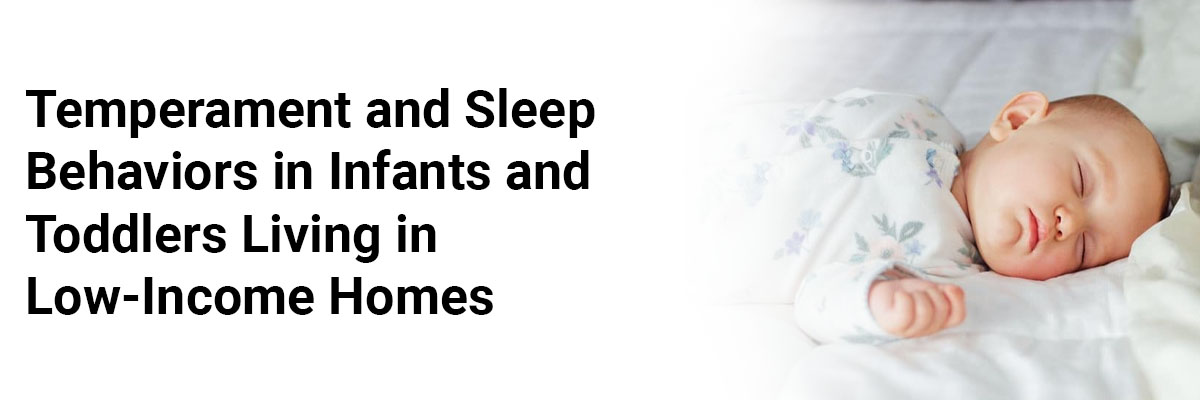
 IJCP Editorial Team
IJCP Editorial Team
Temperament and sleep behaviors in infants and toddlers living in low-income homes
Temperament is a vibrant trait that can be moulded by maturity and environmental experiences. A recent study determined if and the extent to which temperament was predicted by sleeping behaviors in a scantly studied sample of 150 primarily Black and White infants and toddlers living in low-income homes.
Sleeping behaviors were evaluated at 15–19 months of age with caregiver reports of the Tayside Children’s Sleep Questionnaire. Temperament was investigated as effortful control, negativity, and surgency employing the Infant Behavior Questionnaire Very Short Form at 9–12 months of age and employing the Early Childhood Behavior Questionnaire Short Form at 20–24 months of age.
Maternal education, household income, and child sex and race were the Covariates. Repeated variables were standardized, and then missing data from independent variables were multiply imputed in 20 datasets.
Regression analyses revealed that ~1 SD improvement in toddler sleep behaviors can substantially forecast ~1/5 SD better toddler effortful control. However, it does not markedly predict toddler surgency or negative effect.
This study shows that for a sample of infants and toddlers in low-income homes, the way a child learns to regulate sleeping behaviors may affect the development of overall effortful control about six months later.
Source: Bates RA, Singletary B, Dynia JM, Justice LM. Temperament and sleep behaviors in infants and toddlers living in low-income homes. Infant Behavior and Development. 2021;65. https://doi.org/10.1016/j.infbeh.2021.101657.

IJCP Editorial Team
Comprising seasoned professionals and experts from the medical field, the IJCP editorial team is dedicated to delivering timely and accurate content and thriving to provide attention-grabbing information for the readers. What sets them apart are their diverse expertise, spanning academia, research, and clinical practice, and their dedication to upholding the highest standards of quality and integrity. With a wealth of experience and a commitment to excellence, the IJCP editorial team strives to provide valuable perspectives, the latest trends, and in-depth analyses across various medical domains, all in a way that keeps you interested and engaged.




















Please login to comment on this article